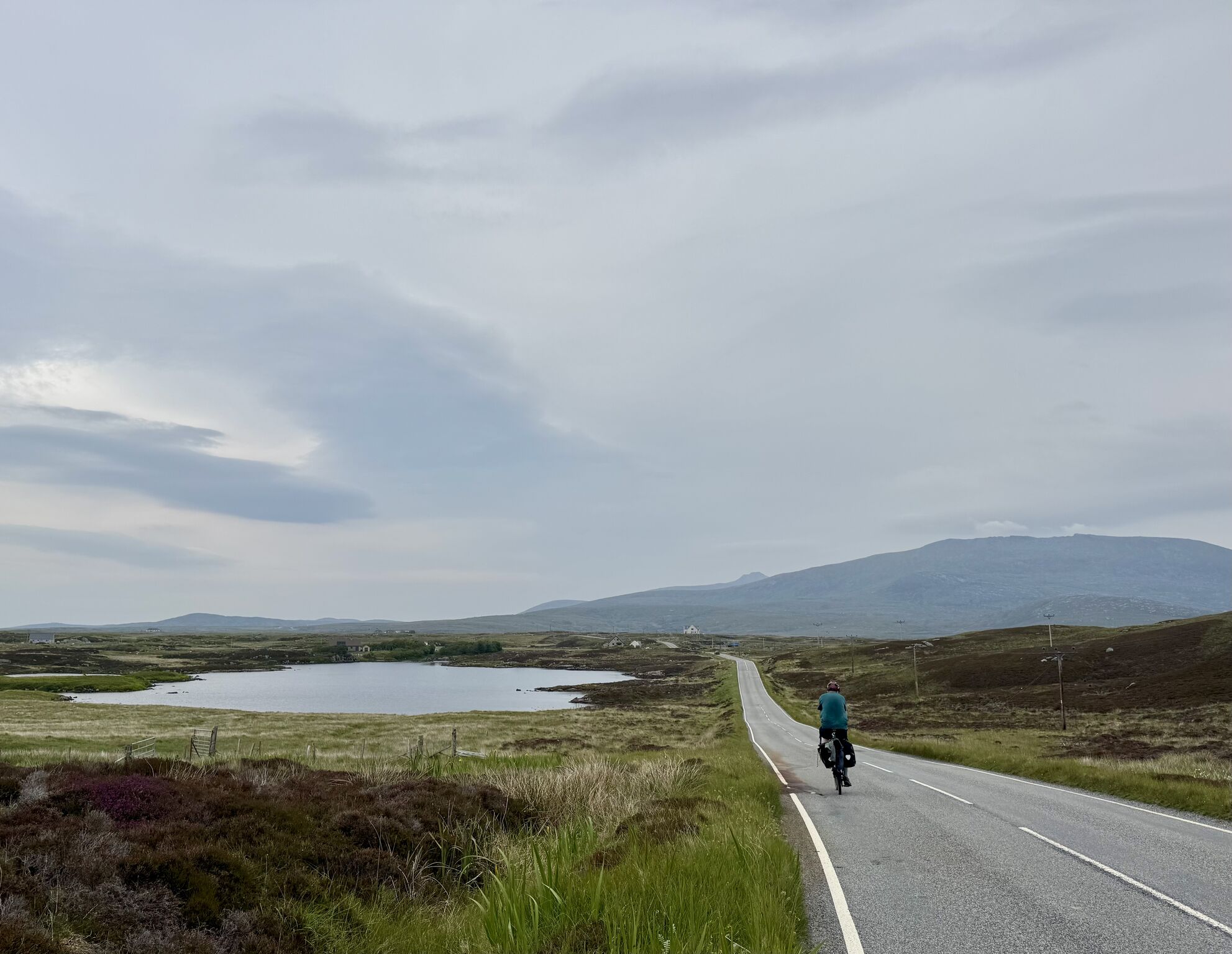
What a Hebridean cycling trip taught me about assets vs. experiences
In June I cycled the Hebridean Way with my daughter just before her 21st birthday. Six days of pedalling through the beautiful Outer Hebrides. I’d never done anything like this before, despite being a keen off-road cyclist.
Spectacular scenery, eagles soaring overhead, hard work to the point of questioning my decision to commit to this at times. But most of all I (and her) now have the most incredible memories of the experience and time we got to spend together pedalling along lost in our thoughts.
However, in February, prior to sorting the logistics for the trip, I was sat thinking of every reason why I shouldn’t do it: Can I spare the time from work? Am I fit enough? Will I enjoy it? Is it worth it? A client got me over the line - the edited version of what he said was that in 20 years’ time I would value that experience more than anything I could buy or invest in now.
This client, ‘Steve’, retired 25 years ago aged 50, not wealthy by modern standards and set about pursuing his passion for travel, food and wine. He recently emailed me with his analysis of his last 10 years’ investment performance.
My mate Frank would be horrified to learn that in the last 10 years my fund has had a shortfall in value of £203,000 when you factor in inflation.
The cash number is virtually identical, however while at first glance that does not seem very good - during that time:
- The two us have made 20 return long haul flights including 11 to Australia
- 34 short haul returns
- Who knows how many hotel nights!
- An expensive fly in fly out safari in Namibia
- An expensive Audley Travel 3 weeks in Colombia
- Two family holidays for 8 one of which was in Barbados - we paid for all the flights
- The list would have been longer but for Covid. Oh, and we bought a new Mercedes!
- On that basis I would say life has been good - thank you
Cheers
Steve
PS In the meantime Frank’s wealth has probably increased and he has done f**k all!’
Steve has enough wealth to have an excess over his basic income needs, funds that can either be accumulated for some future purpose, spent or given away, which puts him in a fortunate position when compared to many and my comments that follow relate solely to people in those circumstances. Clearly you would not tell a client to embark on spending patterns that would threaten their ability to meet their basic income needs at some point.
There is a peculiar British obsession with the continued accumulation of wealth sometimes, dare I say, encouraged by the regulatory framework we work in and the focus on sustainable withdrawals and long-term goals. We can also obsess about the accumulation of ‘trophy assets’ as a reward for financial success. If that floats your boat (literally) then fair enough, but I do think it is our job as planners to just poke at these often-used measuring sticks of financial success.
I am not suggesting that everyone should spend all of their life travelling and exploring at the expense of anything else, others may wish to focus on helping their family out and taking pleasure from how that has a positive impact on their lives. My point is more about serious consideration with clients of the balance between using your wealth as you go along to enrich you and your families’ lives, versus a focus on wealth and asset accumulation for some future gratification that may never arrive! And how do you put a value on that?
What I see is that an increasing number of clients are doing this anyway, prioritising experiences over asset accumulation, but should we do more to encourage it? Not sure I have the answer.
This article first appeared in Citywire New Model Adviser.